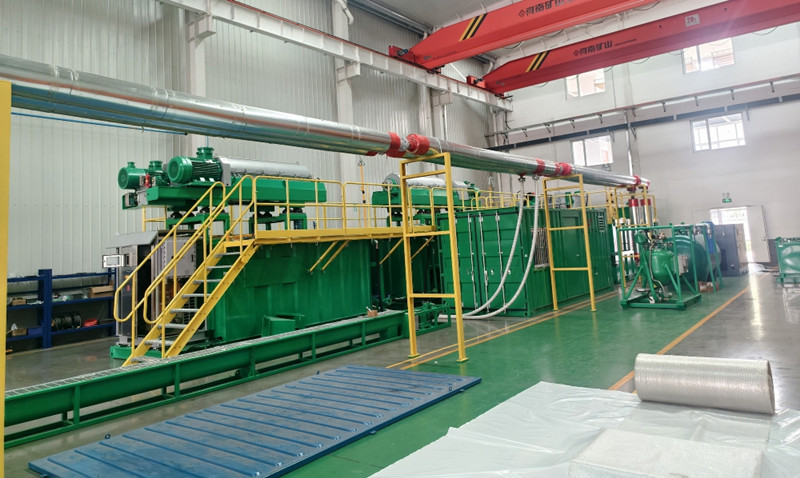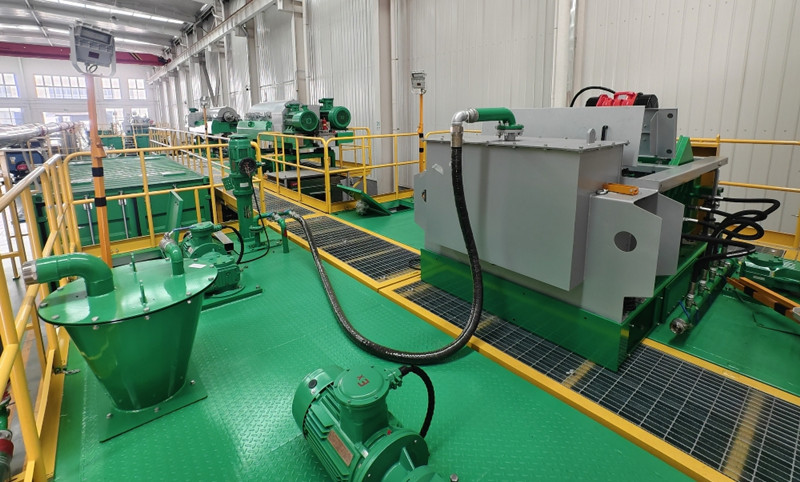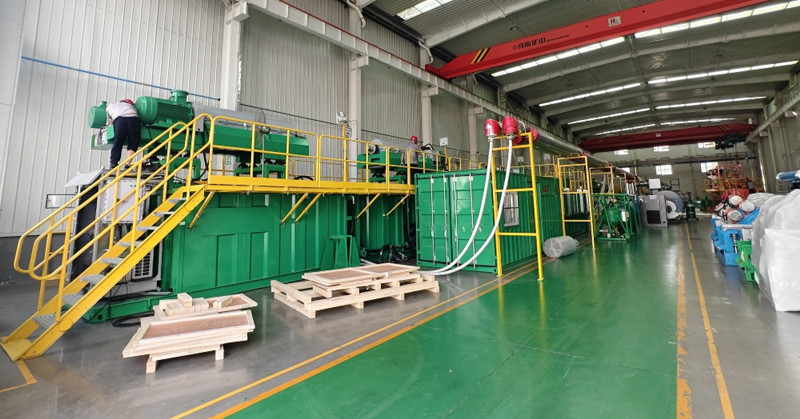
- Details
-
Published: 12 July 2025
Recently, GN Separation successfully finished manufacturing two sets of GNOST-15 Oil Sludge Treatment Systems (OSTS). These systems are now going through rigorous factory trial assemblies to guarantee top-notch performance before being deployed.

A Holistic Approach to Oil Sludge Treatment
The GNOST-15 oil sludge treatment system consists of seven interconnected modules, each designed to carry out specific functions. Together, they convert toxic oil sludge into reusable resources. The system effectively tackles issues like high solid content, emulsified oils, and varying viscosity, ensuring efficient separation of oil, water, and solids while keeping operational costs and environmental impact to a minimum.
1. Slurry Feed Pump Module: Precise Delivery for Continuous Processing
The slurry feed pump module marks the starting point of the system, transporting raw oil sludge into the treatment sequence. It is fitted with high-pressure, corrosion-resistant pumps that guarantee a steady flow of material, even in tough conditions.
2. Pre-Mixing Tank Module: Intelligent Conditioning for Better Separation
Raw oil sludge often contains emulsified oils and dense solids that make direct separation difficult. The pre-mixing tank module addresses this by diluting and conditioning the feed through controlled stirring, temperature control, and chemical addition. The integrated steam generator module produces steam to heat the sludge to ideal temperatures (usually 60–80°C), breaking down thick emulsions and improving flow. This step is vital for preparing the sludge for subsequent processes, ensuring higher separation efficiency.
3. Shale Shaker Module: Precise Removal of Large Solids
To shield downstream equipment from damage and blockages, the shale shaker module employs a high-frequency shale shaker to eliminate coarse solids (>2 mm). The shaker is equipped with an anti-splash cover and spray nozzles to prevent material from escaping and ensure uninterrupted operation without manual assistance. This module lightens the load of solids on subsequent centrifuges, extending their lifespan and boosting performance.
4. GNLW-554 Two-Phase Decanter Centrifuge Module: Fine Solid Separation for Cleaner Output
The GNLW-554 two-phase decanter centrifuge is a key part of the system, using centrifugal force (up to 3,000 G) to separate fine solids from liquids. By adding flocculants during operation, the module achieves outstanding solid removal rates (>95%), resulting in an oil-water mixture with reduced solids content. This step is crucial for enhancing the efficiency of the final oil-water separation stage.
5. GNLWS-554 Three-Phase Centrifuge Module: Maximizing Oil Recovery
The GNLWS-554 three-phase centrifuge module stands at the forefront of oil-water-solid separation technology. It uses differential speed control and a sophisticated bowl design to efficiently split the incoming mixture into three streams: recovered oil, treated water, and residual solids. This module not only ensures adherence to environmental standards but also allows clients to recover valuable hydrocarbons, boosting project profitability.

6. Chemical Dosing Module: Tailored Formulations for Peak Performance
Given that oil sludge composition differs greatly across industries, GN Separation's chemical dosing unit enables real-time adjustment of treatment parameters. Operators can prepare and inject demulsifiers, pH adjusters, and flocculants in precise amounts using pumps.
7. Steam Generator Module: Energy-Efficient Heating for Improved Process Efficiency
Heating plays a pivotal role in breaking emulsions and reducing viscosity. The steam generator module generates clean, dry steam to heat the pre-mixing tank and maintain optimal process temperatures.

Factory Trials: Ensuring Dependability in Real-World Scenarios
The two GNOST-15 systems are currently being assembled for factory trials at GN Separation's facility in China. By blending robust engineering with a modular design, the company provides scalable solutions tailored to various client requirements. For further details, please don't hesitate to get in touch with us.